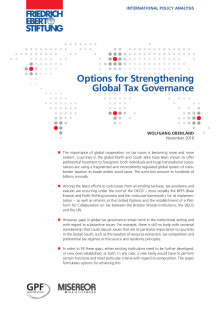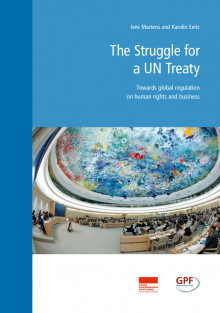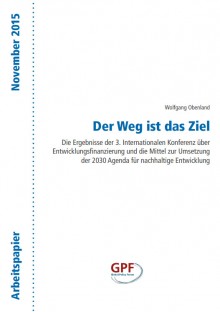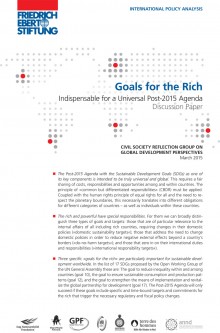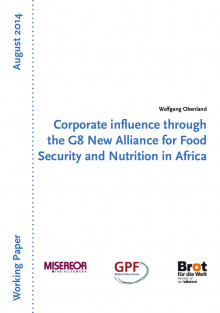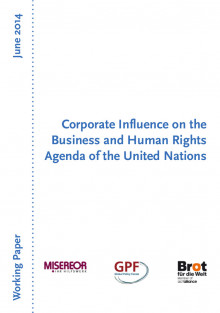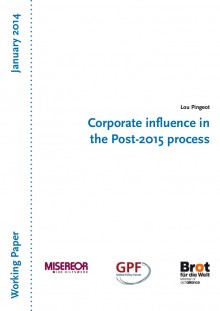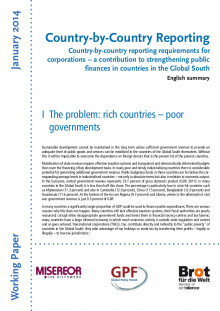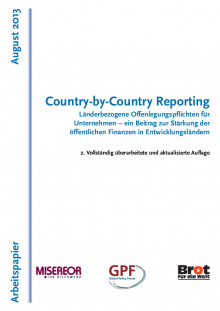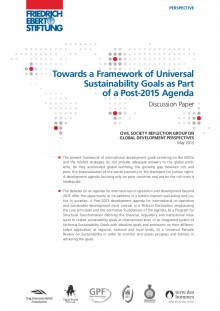Arbeitspapiere
Towards global regulation on human rights and business
Die Ergebnisse der 3. Internationalen Konferenz über Entwicklungsfinanzierung und die Mittel zur Umsetzung der 2030 Agenda für nachhaltige Entwicklung
Indispensible for a Universal Post-2015 Agenda
New Discussion paper for the Civil Society Reflection Group on Global Development Perspectives I March 2015
The Post-2015 Agenda with the Sustainable Development Goals (SDGs) as one of its key components is intended to be truly universal and global. This requires a fair sharing of costs, responsibilities and opportunities among and within countries. The principle of »common but differentiated responsibilities« (CBDR) must be applied. Coupled with the human rights principle of equal rights for all and the need to respect [...]
Country-by-country reporting requirements for corporations – a contribution to strengthening public finances in countries in the Global South
Länderbezogene Offenlegungspflichten für Unternehmen – ein Beitrag zur Stärkung der öffentlichen Finanzen in Entwicklungsländern
Steuervermeidung und Korruption sind weltweite Probleme, die in vielen Entwicklungsländern zu Menschenrechtsverletzungen, Unterdrückung und Gewalt beitragen. Immer wieder sind daran auch transnational agierende Unternehmen (Transnational Corporations, TNCs) beteiligt. So verschieben Unternehmen beispielsweise durch die (legal oder missbräuchliche) Ausnutzung von Schlupf-löchern in Steuergesetzen ihre Profite von Land zu Land – oft über den Umweg von Steuer- und Regulierungsoasen. Dadurch verringern oder vermeiden sie die Besteuerung ihrer Gewinne und entziehen den öffentlichen Haushalten dringend benötigte Einnahmen. Lückenhafte Berichtspflichten für TNCs machen diese [...]
The debates on an agenda for international co-operation and development beyond 2015 offer the opportunity to (re-)address in a holistic manner well-being and justice in societies. Given the economic, social and ecological challenges in the world, this is urgently needed.
The present framework of international development goals centering on the MDGs and the related strategies do not provide adequate answers to the global problems, be they accelerated global warming, the growing gap between rich and poor, the financialization of the [...]

